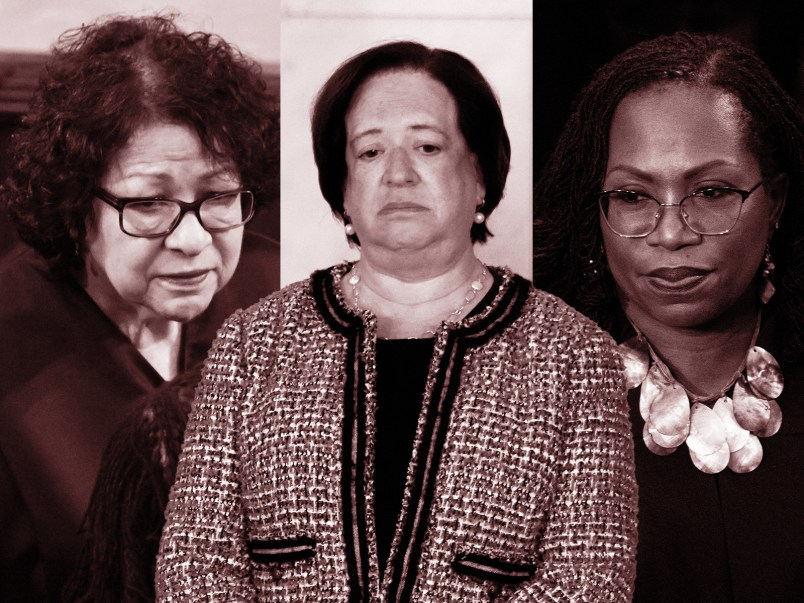Details and reaction on the winners of the 2013 Pulitzer Prizes:
PUBLIC SERVICE: The Sun Sentinel, Fort Lauderdale, Fla.
The Sun Sentinel won for its investigation of off-duty police officers who recklessly sped and endangered lives. The investigation led to suspensions, firings and significant policy changes at several South Florida police agencies.
Editor Howard Saltz said he was especially proud to win for this story.
“It really changed things here for the better,” Saltz said.
“This type of journalism made the community safer, and it made certain people behave in a more appropriate and just way,” Saltz said. “And that’s really what journalism is all about.”
BREAKING NEWS REPORTING: The Denver Post staff.
A quick cheer erupted in the newsroom when word came that the newspaper had won, though there was a moment of confusion about the category.
More cheers followed when it became clear the award was in breaking news reporting for the Post’s coverage of the mass shooting at a movie theater in suburban Aurora last summer, which left 12 people dead.
At the announcement, some in the newsroom teared up and others shared hugs and handshakes.
News Director Kevin Dale said the newspaper would rather win for a less tragic story.
“We are part of this community. The tragedy touches us, but we have a job to do,” he said. “It’s a matter of balance.”
The award citation said the newspaper had used Twitter, Facebook, video and written reports to capture the story and provide context.
INVESTIGATIVE REPORTING: David Barstow and Alejandra Xanic von Bertrab of The New York Times.
EXPLANATORY REPORTING: The New York Times staff.
INTERNATIONAL REPORTING: David Barboza of The New York Times.
FEATURE WRITING: John Branch of The New York Times.
Times spokeswoman Eileen Murphy said Executive Editor Jill Abramson announced the awards to the staff, saying she and Managing Editor Dean Baquet “view the wonderful bounty of prizes as a real tribute to the newsroom’s excellence and dedication.”
Murphy added, “We are proud to have broken new ground in multimedia storytelling and global investigative journalism.”
The investigative reporting award was for reports that detailed how Wal-Mart used bribery to expand in Mexico. The explanatory reporting was for a look at the business practices of Apple and other technology companies. The international reporting award was for detailing the wealth of relatives of top officials in China’s communist party. The feature writing award was for an account of skiers killed in an avalanche in Washington state.
LOCAL REPORTING: Brad Schrade, Jeremy Olson and Glenn Howatt of the Star Tribune, Minneapolis.
The winning coverage was an increase in infant deaths at day-care homes in Minnesota. The state Department of Human Services has since called for more training of home day care providers.
“I hope what we wrote ends up making an impact on the quality of child care,” said Olson, 39, the father of two.
The Star Tribune devoted nine months to the project, Editor Nancy Barnes said.
With a second Pulitzer, for editorial cartooning, “it’s a great day for our newsroom,” she said. “Everyone has worked so hard.”
NATIONAL REPORTING: InsideClimate News.
A 5-year-old nonprofit won for a series on the environmental hazards of diluted bitumen after a million-gallon spill of Canadian tar sands oil into the Kalamazoo River in Michigan in 2010.
The series began as a three-part narrative, and then reporters Lisa Song, Elizabeth McGowan and David Hasemyer published seven more stories about the spill, its environmental impact and pipeline safety issues.
The series was called “Dilbit Disaster: Inside the Biggest Oil Spill You’ve Never Heard Of.”
“We’ve introduced the word dilbit (for diluted bitumen) into the national conversation about energy,” said David Sassoon, publisher of the Brooklyn-based InsideClimate. “It really is a very important word because it’s a very different type of oil with implications about energy policies and climate change.”
COMMENTARY: Bret Stephens of The Wall Street Journal.
The Pulitzer citation said Stephens’ columns on American foreign policy and politics are incisive and “often enlivened by a contrarian twist.”
Editorial Page Editor Paul Gigot said in a statement, “We’re delighted to see our colleague Bret Stephens recognized for his influential and popular columns on foreign affairs and politics.”
CRITICISM: Philip Kennicott, The Washington Post.
Kennicott has been a Pulitzer finalist in the past and said Monday that “it’s much more fun to actually win it.”
His writings included a piece about a photograph of President Barack Obama and Michelle Obama hugging that went viral online. The piece was entitled “Snapshot of an equal, modern marriage.”
Kennicott said he was trying to offer his sense of what the picture meant.
His favorite piece, though, was delving into why people are drawn to images of horror, in particular the picture published by the New York Post of a man standing in front of a subway train after he had been pushed onto the tracks.
“It essentially was an essay about ugliness and the way that ugliness circulates,” he said.
EDITORIAL WRITING: Tim Nickens and Daniel Ruth of the Tampa Bay Times.
Nickens and Ruth wrote on issues ranging from public health to voter suppression to state politics.
The pair composed “clear and forceful editorials,” Tampa Bay Times Editor Neil Brown said.
“Tim Nickens and Dan Ruth went to bat for hundreds of thousands of people, many of them poor, who were being deprived a chance at better health,” Brown said in a statement. “If we don’t do this work, if the Times doesn’t speak up, who will?”
EDITORIAL CARTOONING: Steve Sack of the Star Tribune, Minneapolis.
When Sack, 59, walked into the newsroom Monday, he was carrying a bottle of sparkling wine. Co-workers greeted him with applause.
A 35-year veteran at the Star Tribune and a previous Pulitzer finalist, he said he was humbled to win.
The Pulitzer citation said he has “an original style and clever ideas.”
“I come home happy and proud” every day, he said.
BREAKING NEWS PHOTOGRAPHY: Rodrigo Abd, Manu Brabo, Narciso Contreras, Khalil Hamra and Muhammed Muheisen of The Associated Press.
The quintet was honored for photographs of the civil war in Syria that included the dazed and weeping wounded; a heartbroken man cradling the body of his bloodied, barefoot son; a sobbing, fatherless child; an 11-year-old aiming a toy rocket propelled grenade.
AP Director of Photography Santiago Lyon called the winners “some of the bravest and most talented photographers in the world.”
“I am immensely proud of them for this tremendous and well-deserved recognition of their work covering the tragic and dangerous story of Syria,” Lyon said.
He also praised Manoocher Deghati, Middle East photo editor.
FEATURE PHOTOGRAPHY: Freelance photographer Javier Manzano.
Manzano’s picture, distributed by Agence France-Presse, showed two Syrian rebel soldiers guarding their position as beams of light stream through bullet holes in a nearby wall.
Hasan Mroue, AFP’s deputy photo editor for the Middle East and North Africa, said in an email that all Manzano’s pictures from Syria were “of such high caliber that we felt privileged to have them on our wire.”
AFP said the photo was taken in October in Aleppo and that Manzano was born in Mexico and is based in Istanbul.
___
ARTS
FICTION: Adam Johnson’s “The Orphan Master’s Son.”
The book delighted and occasionally confused critics and readers with its dark and strange story of an ordinary man’s travails in North Korea.
Johnson, 45, a teacher of creative writing at Stanford University, has said he was inspired to write the book after sensing a link between the North Korean dictatorship and the administration of President George W. Bush.
He believed both governments made extensive use of propaganda and he even spent a few days in North Korea to find out for himself, where he was disturbed but inspired by the government policy of not letting citizens talk to foreigners.
A native of South Dakota, Johnson is the author of two other well-regarded books, the story collection “Emporium” and the novel “Parasites Like Us.”
DRAMA: Ayad Akhtar’s “Disgraced.”
The play is about a successful Pakistani-American lawyer whose dinner party spins out of control amid a heated discussion of identity and religion.
“I really wanted to write a play that was going to have a legitimately tragic dimension for a contemporary audience,” Akhtar said Monday. “I wanted the play to have immediacy and aliveness of engagement that harkened back to a tragic form but a mass form, something that would have audiences gasping.”
Akhtar, a 42-year-old New Yorker, also wrote the novel “American Dervish” and co-wrote and played the lead in the film “The War Within.”
“Disgraced” had its world premiere at Chicago’s American Theater Company in 2012 and then ran at Lincoln Center Theater’s Claire Tow Theater. There, the lead character was played by Aasif Mandvi, the very funny correspondent on Jon Stewart’s “The Daily Show.”
HISTORY: Frederik Logevall for “Embers of War: The Fall of an Empire and the Making of America’s Vietnam.”
Logevall, 50, spent much of his 40s on the book, about Vietnam under French rule. Born in Sweden and educated in Canada, he teaches history at Cornell University.
Logevall regards “Embers of War” as a prequel to a 2001 release, “Choosing War,” which tells of the U.S. decision in the 1960s to commit ground troops to Vietnam.
BIOGRAPHY: Tom Reiss for “The Black Count: Glory, Revolution, Betrayal and the Real Count of Monte Cristo.”
Reiss, 48, has a lifelong fascination with 19th-century French author Alexandre Dumas, one that can be traced to his French-born mother. He loved reading “The Three Musketeers” as a kid and was amazed to learn those fabulous characters were based on real people.
He learned he won the Pulitzer while visiting the dentist. Not only does he receive a $10,000 prize, but his dentist waived the fee and promised to do so again should he win another Pulitzer.
POETRY: “Stag’s Leap,” by Sharon Olds.
Olds chronicles her divorce in the collection, her 12th.
“I’m in shock,” she said Monday when reached by phone, adding that she was trembling and a “little weepy.
“And my eyes are very open and sticky.”
Olds wrote most of the “Stag’s Head” poems in the late 1990s when her marriage of 32 years was ending. She waited to publish them until more than a decade had passed out of respect for her grown children.
“Writing lots and lots of poems has been the way I’ve lived my life since I was a teenager, really,” said Olds.
GENERAL NONFICTION: Gilbert King for “Devil in the Grove: Thurgood Marshall, the Groveland Boys, and the Dawn of a New America.”
Doing research in the Library of Congress, King came across a dramatic case of four black men falsely accused of rape from 1949 that was little remembered despite its famous attorney, Thurgood Marshall. Bringing justice to the case would be one of Marshall’s greatest, most trying accomplishments before the landmark suit Brown v. Board of Education.
The New York-based King, a journalist and author of a similarly themed book, “The Execution of Willie Francis,” was on a book tour in Florida’s Lake County, the setting of his book, when the Pulitzers were announced.
“It’s sort of a ‘To Kill a Mockingbird’ — almost exactly like that,” he said, “except you have an African American lawyer instead of Atticus Finch trying the case in the Jim Crow South.”
MUSIC: Caroline Shaw for “Partita for 8 Voices.”
Shaw, a violinist and vocalist, is 30 and a graduate student at Princeton University.
The winning composition was an a cappella piece, written for her vocal octet Roomful of Teeth, that is both modern and steeped in the Baroque tradition. It was released on Roomful of Teeth’s self-titled debut album last October on New Amsterdam Records.
Shaw believes she is part of a new guard of contemporary classical musicians. “We’re developing a language of music that comes with a lot of different styles, different kinds of work,” she said.
The Pulitzer committee wrote of Shaw’s work: “a highly polished and inventive a cappella work uniquely embracing speech, whispers, sighs, murmurs, wordless melodies and novel vocal effects.”
Copyright 2013 The Associated Press.










